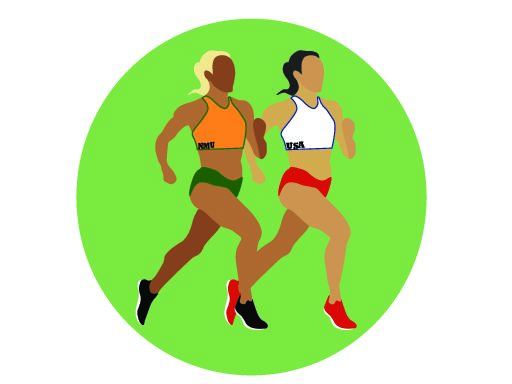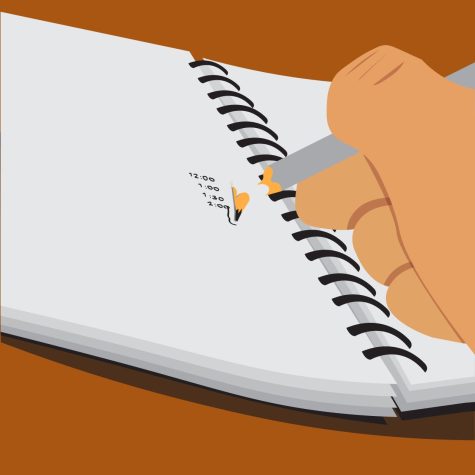Editorial—Athletes and mental health: even our heroes are human

Athletes at all levels, whether students or Olympians, struggle with their wellbeing just like everyone else.
August 26, 2021
This year’s Olympics has brought attention to the crushing expectations placed on athletes; when Simone Biles walked away from the competition due to her mental state, she joined other athletes who have been increasingly open about the struggles which affect their performance.
Biles, regarded by most as the greatest gymnast of all time, dropped out of the running to focus on mental health when she began experiencing “the twisties,” a state of disassociation that makes gymnasts unable to sense where they are in the air and how to land. If she had continued to compete she may have sustained serious injuries, yet there has been significant backlash regarding her decision.
“It would have been unimaginable only a few years ago for an Olympic athlete to admit to significant doubts during the Games, much less to withdraw from an event. But Biles, Osaka and others in their generation have been vocal about putting their mental health first and the expectations of others, at best, second,” according to the New York Times.
The incredible pressure for athletes, especially at such a high level, to remain stoic in the face of serious mental health conditions which may affect their performance, is demonstrated by the reaction of some of the public. Simply looking through Biles’ Twitter, one can find too many examples of that same public shaming her for the decision to back down from competition.
While @1fabfemail writes, “bla bla bla, a lot of people overcome crap. She chose to be on this team. You don’t quit on your teammates. She’s a selfish person. It’s all about me me me,” @SMcgrooter adds, “If she can’t handle it, she’s not a professor [professional] athlete and it’s time to retire. Since when do we praise quitters?”
Yet the increasing willingness of top athletes to admit when they are in no state to compete is indeed something to praise. The fact that Biles and other athletes have lately been brave enough to prioritize their safety and mental health, even when under the immense pressure of the world’s expectations, is encouraging. It’s certainly not easy.
These moments function as a reality check for those who watch and idealize our athletes. Even people who operate at the top of their field are human, and sometimes the best they can do is be honest about their struggles. It is undeniably sad to see people upset over something so real: a gifted young woman choosing her health and safety over the expectations of others. We can only hope that in the coming years, the response to such events will change and become more accepting.
This issue is relevant not only for athletes on the Olympic stage but for student-athletes as well. Student-athletes often compete for the love of their sport, choosing to take on the pressure of competition even as they continue their studies like the rest of the student body.
We at NMU are particularly proud of our Division 1 hockey team, which is continually striving to be the best of the best. They do all they do—training, going through a great deal of play, walk-ons—and succeed as students on top of it. Our reporters at the North Wind remember conversations with the volleyball team this year, being told by someone our same age that they felt the pressure and fear of letting down all of NMU if they proved unable to win the GLIAC championship. We must remember that the mental toughness required for our athletes to compete at all is incredible and should be respected.
We often view athletes as heroes and idols, even statues representing our values as a collective. And perhaps that goes for anyone in the spotlight: we see them on a pedestal and forget they are just people. But they still have a life. They’re not invincible; they do the same things everyone else does.
Now we are finding troublesome the idea that all people must prioritize their accomplishments, their job, school or their craft over their wellbeing. In the case of athletes, we see a strong example of a trophy, a goal, an award, a promotion being placed above the experience and health of a human being.
Even our heroes are human and can break. It is hard to see a hero suddenly admit to struggling with their mental health. But this year’s Olympics reminded us all of the reality: we still have to respect the people we look up to like people and not statues.






























